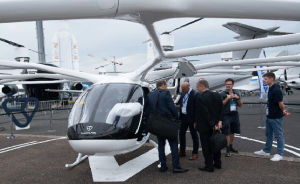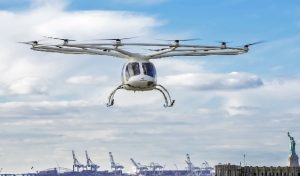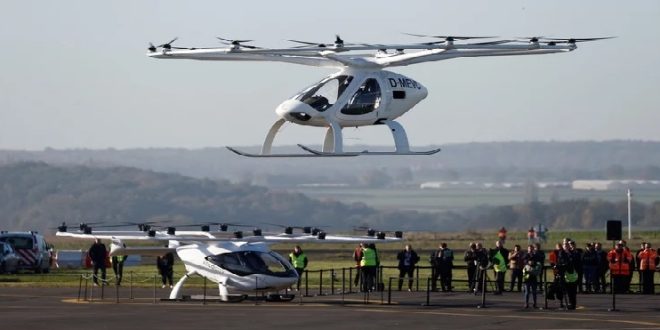01-01-2025
BERLIN: Air taxi start-up Volocopter GmbH filed for insolvency proceedings on Monday, citing its inability to raise new funds to maintain regular operations.
The Mercedes-Benz, opens new tab and Honeywell, opens new tab-backed company plans to continue business operations during the insolvency proceedings while seeking additional funding.
 “Despite recent intensive fundraising efforts, finding a viable solution to maintain regular operations outside of insolvency proceedings has not been possible,” the Bruchsal, Germany-based firm said.
“Despite recent intensive fundraising efforts, finding a viable solution to maintain regular operations outside of insolvency proceedings has not been possible,” the Bruchsal, Germany-based firm said.
The electric vertical takeoff and landing (eVTOL) industry is facing a financial crunch, with companies persistently seeking new investments to support their capital-intensive operations as companies prepare for commercial operations.
In November, peer Lilium said it would file for insolvency “soon”, after failing to resolve its financial difficulties.
Founded in 2011, Volocopter was scheduled to enter the market in 2025 with its urban eVTOL, the VoloCity.
The race to become the first Western air-taxi company to carry passengers lost a high-profile competitor this month when Germany’s Lilium succumbed to a cash crisis, throwing a fresh spotlight on a major hurdle for the fledgling industry.
Almost halfway into the decade in which air-taxi makers have promised investors the first commercial flights, the demise of Lilium shows how dwindling cash balances threaten to delay the sector’s aim to revolutionize urban travel.
Makers of electric vertical take-off and landing aircraft, commonly known as air taxis, have raised roughly $13 billion since 2019, but the pace of annual investments has fallen after peaking in 2021, according to data from Alton Aviation Consultancy.
 Despite marquee investors such as US carrier Delta Air Lines, opens new tab, and automakers Stellantis , opens new tab and Toyota, opens new tab, analysts say billions more will be needed to achieve certification, large-scale aircraft production and profitability.
Despite marquee investors such as US carrier Delta Air Lines, opens new tab, and automakers Stellantis , opens new tab and Toyota, opens new tab, analysts say billions more will be needed to achieve certification, large-scale aircraft production and profitability.
“We are starting to see the weaker players fall by the side … there will be more to follow,” said Brian Foley, founder of aviation consultancy Brian Foley Associates.
EVTOL makers have raised $2.3 billion so far in 2024, compared with $1.5 billion in 2023, $3.4 billion in 2022 and $4.3 billion a year earlier, according to Alton data, while profits have remained elusive as companies invest in setting up operations and securing certification. The companies including Archer Aviation, opens new tab, Joby Aviation, opens new tab, Embraer backed-Eve Holding, opens new tab, Lilium and Vertical Aerospace, opens new tab tapped in to the blank-check firm merger craze at the beginning of the decade, going public at multibillion-dollar valuations.
That was before they even had a product – a stage where most companies prefer to stay private and depend on venture capital funding.
Archer, Joby and UK-based Vertical had estimated they would launch commercial service in 2024 after they went public, according to company statements and a 2021 Bernstein analyst note.
That timeline is certain to be missed, as regulations are still evolving in the United States and Europe. Some eVTOL companies have stopped making public predictions about approvals from the US Federal Aviation Administration, which regulates the world’s biggest market. Regulatory delays, an uncertain economic environment and simmering global tensions have weighed on the sector’s fundraising and progress.
“We don’t have these companies getting to profitability until late into the decade,” said Raymond James analyst Savanthi Syth. (Int’l News Desk)
 Pressmediaofindia
Pressmediaofindia




